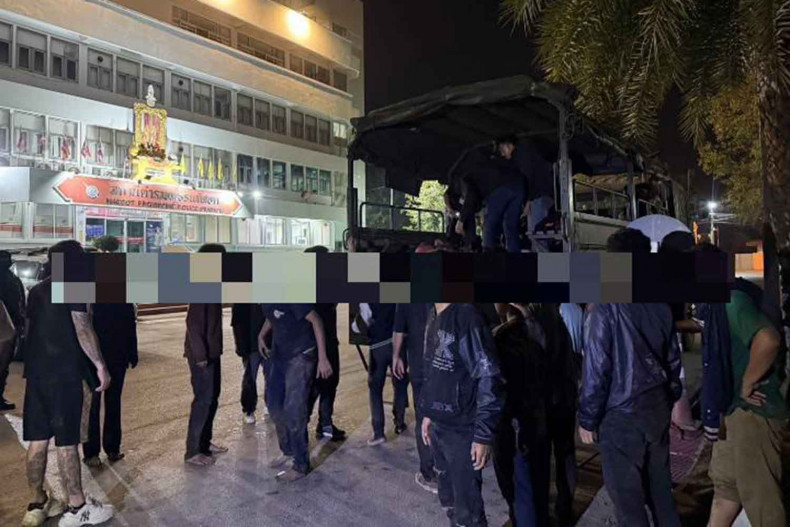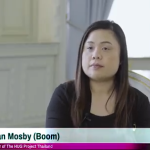
The arrest this weekend of 32 Indonesians for having entered Thailand illegally after fleeing a city on the Thai-Myanmar border that is notorious for operating scams is maddening, to say the least.
Having previously fallen victim to these scam gangs, what these people needed was some help, not to face further hardship at the border area in Mae Sot district.
Meanwhile, the government’s latest attempt to seal the drug and human trafficking route along this part of the Thai-Myanmar border is proving inadequate. It also misses the crux of the problem. This scam city is thriving, partly due to its support from the Thai side.
This city, infamous for global phone scams, human trafficking, torture, and extortion, is shielded by armed rebel groups in Myanmar. Over 7,000 human trafficking victims from around the world are believed to be trapped there. More than half of them are Chinese, according to the Civil Society Network on Human Trafficking.
Some have succeeded in escaping by paying ransoms. Many were reportedly tortured to death or turned to suicide out of desperation. Only high-profile cases like that of the Chinese actor Xing Xing or the model Yang Zeqi are known to have been released by their captors.
This shows how the authorities can and will act only when under pressure. Yet, for the nameless majority of human trafficking victims, pleas from their families and foreign embassies go unanswered.
These organized crime groups rely on support from Thai soil. The victims are transported freely across multiple checkpoints and natural channels to cross the Thai-Myanmar border in Tak province and can get access to world-class hospitals or stay at luxurious homes in Bangkok. They use telecommunications services, food supplies, and construction materials in Thailand. The authorities’ failure to act decisively suggests more than negligence — it hints at an entrenched system of corruption.
Meanwhile, Defence Minister Phumtham Wechayachai’s remarks about these victims are disheartening. He suggested that Xing Xing crossed the border into Myanmar voluntarily and urged the local media to avoid highlighting the Chinese model’s disappearance for fear of losing tourism income. This tramples on press freedom and prioritizes money over people’s suffering.
The recent handling of the Indonesian victims is also appalling. By arresting those who escaped unimaginable abuse, the authorities have sent a chilling message to others in captivity: There is no refuge for them in Thailand.
Instead of criminalizing these survivors, the government should invoke the Anti-Human Trafficking Act to protect and support them. These victims are critical witnesses who could help dismantle these criminal networks. Who is the Thai government helping, the scammers of their victims?
The government is not powerless. It has plenty of intelligence about these organized criminal outfits. The question is, when will it act?
The Cyber Crime Investigation Bureau says online scams by Chinese gangs cost Thailand 50 million baht every day. Globally, these syndicates steal around $64 billion a year (2.28 trillion baht), according to the United States Institute of Peace.
Thailand should not risk being seen as a complicit supporter of global human trafficking. Failing to confront these crimes could devastate the economy, eroding trust and damaging relationships with key partners like China.
source: https://www.bangkokpost.com/opinion/opinion/2944582/crackdown-on-scam-city




